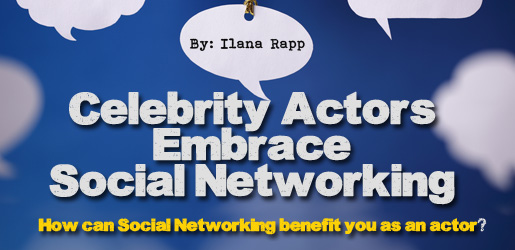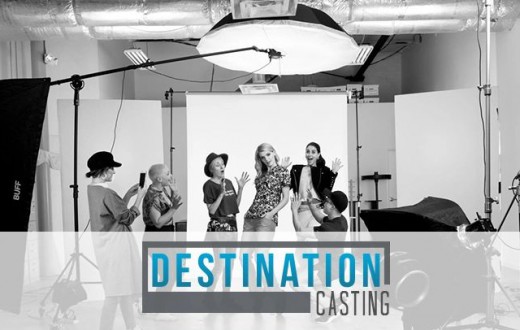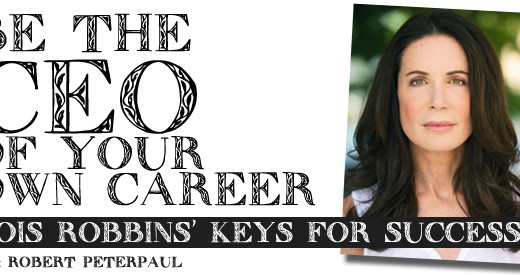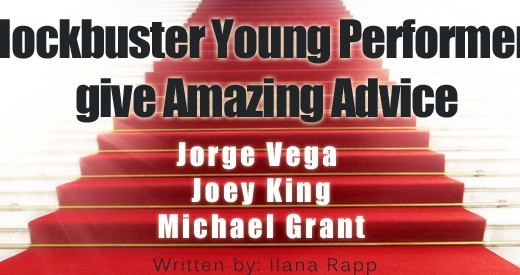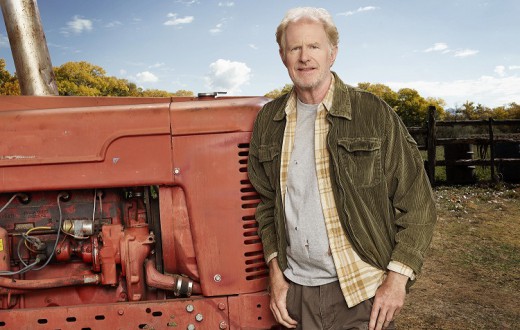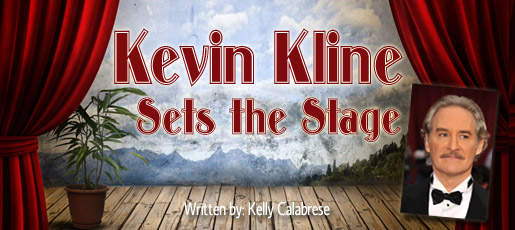How can Social Networking benefit you as an actor?
With the explosion of Facebook and Twitter over the past few years, it’s no wonder celebrities have opted to use these platforms as a way to communicate directly with the public. Whether it’s just sharing their thoughts or actually interacting with their followers, actors have taken to Social Networking in a way that was unheard of 10 years ago.
Want to talk to the Captain of the Starship Enterprise? How about a dead CIA counterterrorist director? Would you like to chat online to a guy who has no computer? Let’s see how three established actors and one musician have used Social Networking to enhance their careers.
 STEPHEN COLLINS aka Reverend Eric Camden in 7th Heaven and Captain Decker in Star Trek: The Motion Picture
STEPHEN COLLINS aka Reverend Eric Camden in 7th Heaven and Captain Decker in Star Trek: The Motion Picture
Twitter: @StephenCollins
1. Has being on Twitter helped you secure work or has it just been a tool where you can keep in touch with those you’ve worked with / are working with?
I can’t say for sure that I’ve gotten work directly from Twitter, but it has introduced me to several people in the business, and has resulted in a few offers.
2. Do you feel closer to your fans by having direct interaction with them?
Yes.
3. How is your interaction with fans different than before you were on Twitter?
Before Twitter, I had to rely on fan snail-mail, or a website, and my GuestBook page kept getting overloaded with Spam. I enjoy the direct, easy contact that’s available with Twitter.
4. Why do you do Grammar Patrol?
I decided to do something totally un-Twitter-like. So many people Tweet to gossip, tell jokes, spread news, or talk to their fans. Bad grammar has always irritated me, so I decided I’d use this platform, where misspellings are rampant and grammar is often terrible, to exercise my inner 9th grade English teacher. To my surprise, people love it. I finally had to back way off because I answered every entry personally (with either an A+ if they were correct, or a short explanation of why their entry was mistaken). I enjoyed it, but it started taking two hours a day to do it right. I like that Tweeters still send me their grammar questions or pet peeves.
5. Your Twitter posts usually contain information or info about your passions (i.e. the Mets). How come you don’t whine and moan like other Twitter users?
I want to use my own ‘voice’ on Twitter and not try to sound like everyone else.
6. Anything else you want to say.
I love Twitter and I sense that it’s here to stay, but, like Facebook, I’m still not convinced that many people use it productively. Some do, but most, I have a feeling, don’t.
 DAVID HAREWOOD aka David Estes in Homeland and Joshua Naismith in Doctor Who
DAVID HAREWOOD aka David Estes in Homeland and Joshua Naismith in Doctor Who
Twitter: @DavidHarewood
1. Has being on Twitter helped you secure work or has it just been a tool where you can keep in touch with fans and those you’ve worked with / are working with?
It hasn’t got me acting work but I’ve made some strong contacts from being on Twitter, especially during ‘HOMELAND.’ In particular, a certain individual who seemed to know a LOT about the C.I.A. He gave me some interesting books to read and I’d say he allowed me to fill in some character blanks that I had.
2. Do you feel closer to your fans by having direct interaction with them? How is your interaction with fans different than before you were on Twitter?
I don’t really see them as fans; maybe I should. I just see them as people who might be interested in what I have to say. I enjoy the interaction. Sometimes they have very interesting things to say. It’s like getting the train home after being on stage and sitting next to someone who watched the show! I enjoy talking to them about their thoughts and listening to their ideas. I follow people who hardly tweet at all – maybe they just want the numbers – but i enjoy the banter most of the time.
3. Do you choose the causes, such as #bethecure / @AnthonyNolan, that you tweet about for any specific reasons?
I choose the causes that I feel strongly about or that I have a connection with. Often people ask me to retweet things but if i don’t have a connection or I don’t feel it, I tend not to. I actually donated my bone marrow to a stranger a couple of years ago so I do a lot of work with Anthony Nolan. Blood cancer is a big killer, particularly in the black and mixed race community.
4. What was your reaction when your character in “Homeland,” David Estes, turned evil and the hashtag #badestes started floating around Twitter?
Loved #badestes! It was a hell of a lot more interesting than #estes-squarepants! I thought the character was a little dry and straight most of the show but I enjoyed it when he began to get nasty. It was a lot of fun.
5. Anything else you want to say, including a plug for upcoming work.
Watch out for ‘Third Person’ directed by Paul Haggis. I’m also still working with the script writers on this Paul Robeson movie. The Robeson movie would be an enormous challenge and would be very exciting to shoot.
 TIM GUINEE aka Ben Matheson in Revolution and Major Allen in Iron Man 2
TIM GUINEE aka Ben Matheson in Revolution and Major Allen in Iron Man 2
Twitter: @TimGuinee
1. Has being on Twitter helped you secure work or has it just been a tool where you can keep in touch with those you’ve worked with / are working with?
I don’t think it’s ever helped me secure work. But it does help me stay in touch with folks I’ve worked with, which I very much appreciate.
2. Do you feel closer to your fans by having direct interaction with them? How so?
The interaction with people can be very interesting. I have at times (not to encourage this) received some very interesting criticism from folks on twitter. Criticism which has occasionally proved instructive. For the most part people have been very kind and sometimes have shared very heartening stories with me about how projects I’ve been involved with (‘Sweet Land’ comes to mind) have affected them in some way or other.
3. What exactly do you get out of social networking? (i.e. is it a release for you, like how some people meditate? Do you get your frustrations out by tweeting?)
I would say this about social networking: I have lived on the road for most of my life. In fact, it is rare for me to spend more than three or four months at home in any given year. Social media helps me feel connected in a job which can at times feel rather isolating.
 ELIAS CAMERON musician and audio-video specialist
ELIAS CAMERON musician and audio-video specialist
Twitter: @EliMuso
1. What was your initial purpose to use Social Networks such as Facebook and Twitter?
I initially joined Facebook as I was a principal performer in a show with a cast of 60 and for the sake of ease, the musical director set up a Facebook group with everyone’s directions/music all in one place. The social aspect (upon realizing that 75% of my friends were already on Facebook) came afterward! Joining Twitter then seemed like a natural progression and although it does work quite differently than Facebook, I have found some of these differences to be beneficial.
2. Have you ever secured work from being on FB and Twitter? If yes, what type of work?
I have indeed! In one of my many musical roles, that of a record producer, through social networking I was fortunate enough to work with a prominent international singer who very graciously allowed me to remix one of her songs, to great response. Subsequently she has agreed for me to remix more of her work!
3. Describe your job outside of Social Networking.
I have been a professional musician for 20 years and also a trained vocalist. I teach voice, perform on stage and I also produce music. I am currently working on the soundtrack for a forthcoming documentary. An all-round musician!
4. Have you met anyone in person in your industry due to Social Networking? Who and in what capacity?
I recently had the pleasure of being invited to play piano at the birthday party of an actress friend (who I became connected with via social networking) and subsequently met many high-profile actors, producers, musicians…most notably Grace Jones!

